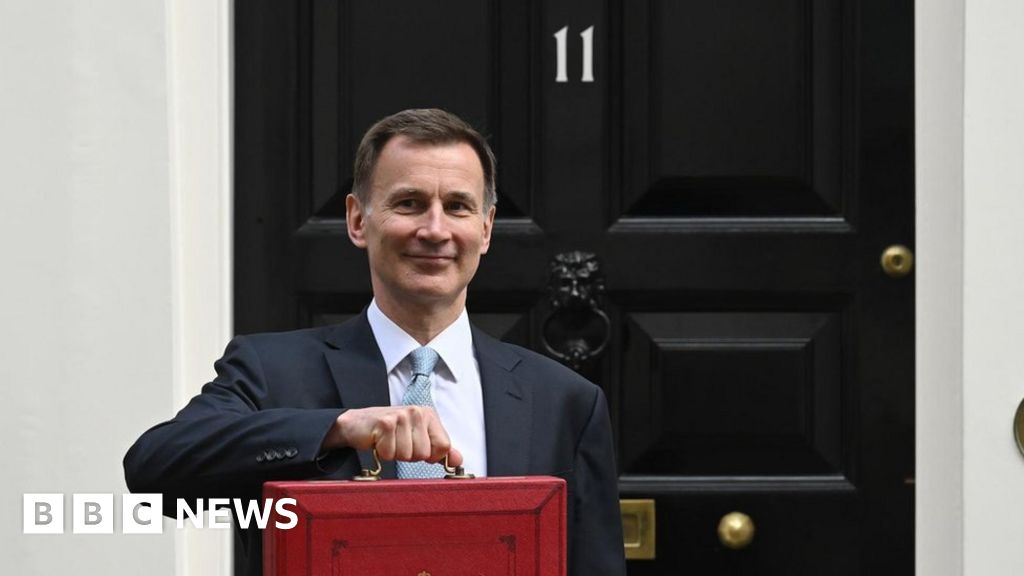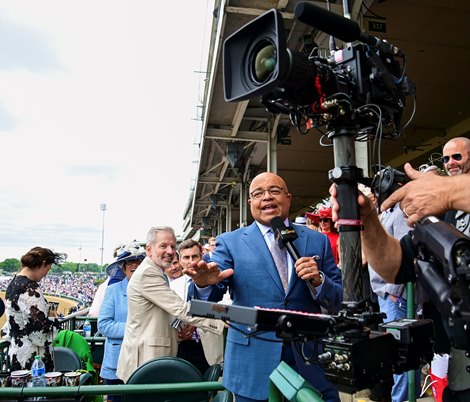- By Chris Mason
- Political editor, BBC News
We have had a glimpse into the most important tussle of the general election campaign.
The battle for economic credibility.
This was a Budget where the Chancellor attempted to portray himself as a careful, cautious custodian of the economy.
The National Insurance fall, alongside the same cut a few months back, amounts to a big tax cut.
But there was nothing wildly surprising in what Jeremy Hunt had to say, no fireworks that are likely to instantly transform the Conservatives’ prospects.
Mr Hunt is instead attempting to make an argument that slowly but surely the economy is recovering.
In my interview with him, for instance, he pointed out that average earners will be better off when you compare the National Insurance cuts with those frozen tax thresholds that have amounted to huge tax rises for many people.
But the big economic argument to come is wider than that. It takes in inflation, mortgage costs, rent and income per head.
As the statistics are traded in the coming days, there is something beneath them that matters more: sentiment. Do people feel better off, do they feel they have more disposable income and do they feel economically confident about the future?
It is those three questions that frame the political argument between the Conservatives, Labour and others over the economy.
Labour feel they have scraped their way back to being taken seriously by many on the economy again, and there is opinion poll evidence to support this.
What is often an Achilles’ heel for Labour they now hope is a strength, not least because they think many, many people feel worse off under the Conservatives.
Conversely for the Tories, what is so often a strength for them is now a vulnerability, the economy, given they have presided over the turbulence of recent years.
Most of that turbulence, many would accept, was entirely beyond their control: the pandemic and the war in Ukraine, both of which prompted vast public spending to support families and businesses that many were very grateful for.
The consequences of that spending can be seen now in tax rates and the national debt, among other things.
But Labour are keen, too, to pin some of the blame squarely on the Tories. “Where’s Liz? Where’s Kwasi?” shouted Labour MPs during the Budget address.
Pantomime-esque questions with political bite: Labour want to remind people the previous prime minister and the previous chancellor caused an economic calamity with real consequences.
Jeremy Hunt, beyond what he has announced, is trying to set a direction of travel: he told me he would like to scrap National Insurance altogether.
Now that might be like you or me saying we’d like to win the lottery: what we’d like to do and what is likely to happen are not the same thing. Scrapping it would cost a fortune.
But it is an indicator of aspiration, and an attempt to frame points of difference between the Conservatives and Labour.
Can he do enough to start tempting people to think again about switching to Labour?
The opinion polls suggest he has one heck of a job on his hands.
Labour, meanwhile, conscious they lose far more elections than they win, are attempting to appear reassuring to floating voters.
And so a lot of what this government announces, whether in the Budget or over the last six months, they have gone along with, including much of what was in the Budget.
Which now leaves them with a headache – how they pay for some of their promises, having accepted the Chancellor’s tax cuts.

David Turner is a globe-trotting journalist who brings a global perspective to our readers. With a commitment to shedding light on international events, he explores complex geopolitical issues, offering a nuanced view of the world’s most pressing challenges.





/cdn.vox-cdn.com/uploads/chorus_asset/file/25453625/247116_GE_Indoor_Smoker_JTuohy_0013.jpg)


